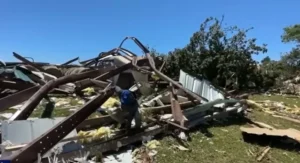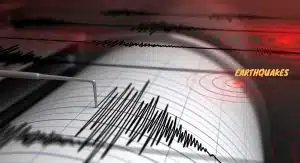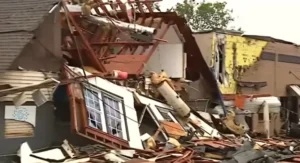8 Reasons Why Disaster Management Is Important
By TOI Staff
July 3, 2023
Update on : July 3, 2023

It’s not uncommon for disasters to strike at the least expected time, and their aftereffects are devastating. They threaten human lives and shake the economy to the core. Ensuring preparedness to tackle unforeseen circumstances is crucial, which is where disaster management comes into the picture. A disaster management plan can enhance our response to the rescue and help us be more prepared in any adverse scenario by avoiding as many risks as possible.
Below, we will discuss the importance of disaster management in case of any unforeseen disaster and how it helps us avoid more risks and facilitates response and recovery.
1. Manages Risks and Vulnerabilities
Disaster management includes different steps to identify and reduce disaster risks and vulnerabilities. Disaster management professionals carry out risk assessments, hazard mapping, and vulnerability analysis which helps them understand the possible impacts and ultimately develop strategies to avoid or reduce those risks.
Over the past few years, disaster management has become a recognized profession and area of study. It has enabled us to understand the risks associated with disasters and how to develop strategies to help avoid or minimize the impacts of those risks. For those interested in pursuing this field, enrolling in an online masters degree in disaster management can help drive their career in the right direction. Such online programs are ideal for those seeking higher academic credentials alongside work exposure.
2. Improves Readiness
Effective disaster management involves improving response and preparedness. Investing in readiness measures that ensure people’s and establishments’ safety and enhance the ability to respond in any disaster is essential. Managing disasters involve developing and implementing emergency plans, carrying out drills and simulations to improve response, and raising awareness in the public regarding possible hazards.
Training and providing education enable communities to respond appropriately by reducing mass panic and helping improve the overall efficiency of response. Improving readiness also involves stockpiling essential supplies, launching communication systems, and developing coordination.
3. Assists Response and Recovery
One of the most crucial initiatives after disaster strikes is the response and recovery efforts. Disaster management ensures we start searching and rescuing operations as soon as possible to minimize the loss of precious human lives. It also ensures that necessities like medicine, shelter, food, and clean water are easily accessible to affected individuals.
Response and recovery efforts are not only limited to short-term strategies but also extend towards creating long-term recovery by restoring vital services like communication channels, reconstructing infrastructure, and organizing rehabilitation for the affected communities.
4. Builds Resilient Communities
Implementing strategies that reduce vulnerabilities and risks helps us build resilient communities by ensuring we are better prepared for future disasters. Disaster management focuses on building structures and standards to withstand unforeseen circumstances, adopting sustainable land-use practices that encourage growth and help preserve ecosystems that act as natural barriers against disasters.
Not only this, but disaster management encourages community engagement and active participation, which empowers everyone to take ownership of their safety. Resilient communities are better equipped to withstand and recover from disasters which reduces the overall impact on our lives.
5. Minimizes Monetary losses
Disaster management encourages businesses to undergo business continuity planning, which sets clear-cut strategies to help ensure business continuity in any unforeseen circumstances like natural or human-induced disasters. Companies can implement backup power systems, alternate supply chain partners, and remote work capabilities to minimize financial losses. These measures can prove helpful in times of crisis.
Disaster management also encourages insurance and other risk transfer mechanisms to help minimize financial loss due to disasters. Getting insurance coverage on property, business interruption, and crop insurance can help individuals and businesses recover financially. Governments can also establish risk financing mechanisms like contingency funds and catastrophe bonds that provide financial support and aid recovery efforts.
6. Enhances Resource Management
Effective resource management is an essential component of disaster response. Disaster management ensures that resources are utilized efficiently and that wastage is minimized. Trained disaster managers are essential for allocating resources to execute well-managed disaster responses.
Disaster management involves utilizing various resources such as equipment, human resources, vehicles, premises, and humanitarian aid supplies. Therefore, emergency responses are complex operations that require urgent establishment. Disaster management practices provide vital guidelines and principles for bringing in, deploying, and utilizing resources, making it a crucial aspect of disaster response.
During a crisis, resources are quickly dispatched to disaster areas as part of the response effort. That’s how disaster management helps prevent unnecessary allocation of resources and provides responders with a framework for determining which resources to use. Correct allocation of resources is fundamental to successful emergency response, highlighting the importance of disaster management.
7. Supports Disease Prevention
Disasters not only result in a significant number of fatalities but also pose an increased health risk to those impacted. These individuals are often exposed to various illnesses that can lead to further fatalities. In particular, infectious diseases like malaria are more prevalent during and after a disaster due to the scarcity of healthcare facilities, clean water, food, and sanitation.
Disaster management helps communities against these widespread diseases by ensuring clean accommodation, necessities, and disease surveillance healthcare teams to detect and contain outbreaks in affected districts.
8. Promotes Stability
Social order, the economy, and trade can all be severely disrupted in times of disaster. In the worst-case scenarios, disasters can breed insecurity, ethnic tensions, mistrust, and even violence. If addressed, these conflicts can help stabilize the masses and the efficacy of security forces. Following a disaster, individuals who typically rely on law enforcement agencies for protection may look to alternative sources for law and order. Unfortunately, this can lead to an increase in crime and violence.
That’s where disaster management contributes by promoting readiness, enabling rapid response and recovery, building strong communities, ensuring economic stability, and providing primary education and awareness by conducting drills and simulations. All in all, disaster management helps provide a stable foundation for communities in the aftermath of disasters.
Conclusion
Disaster management is vital in safeguarding lives and protecting our assets by helping build resilient communities and ensuring that resources are readily available and equally distributed. It launches prompt response and recovery efforts in the long and short term by working on reconstruction, restoring vital services, and providing rehabilitation. It also fosters collaboration, sustainable land use practices and addresses social inequities. Moreover, it also helps minimize monetary losses. Investing in disaster management strategies and fostering resilient communities is a proactive and necessary measure toward creating a safer and more sustainable future for everyone.
Read more: 8 Reasons Why Disaster Management Is Important















